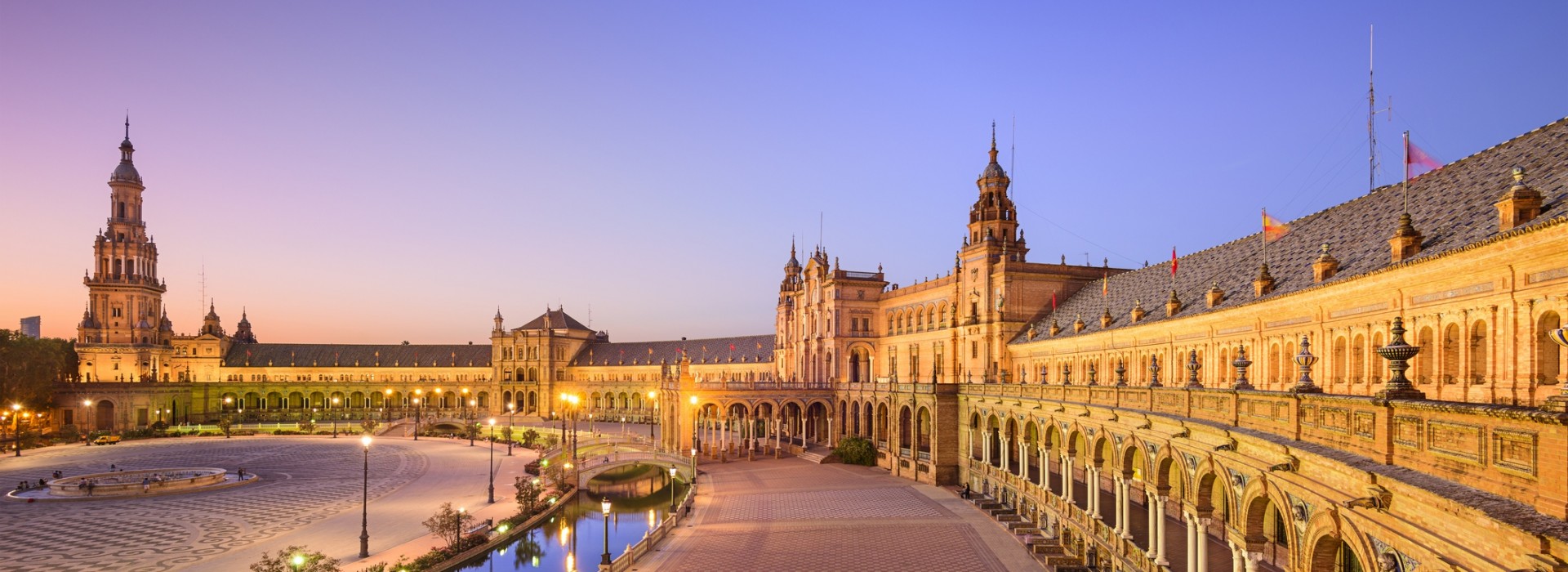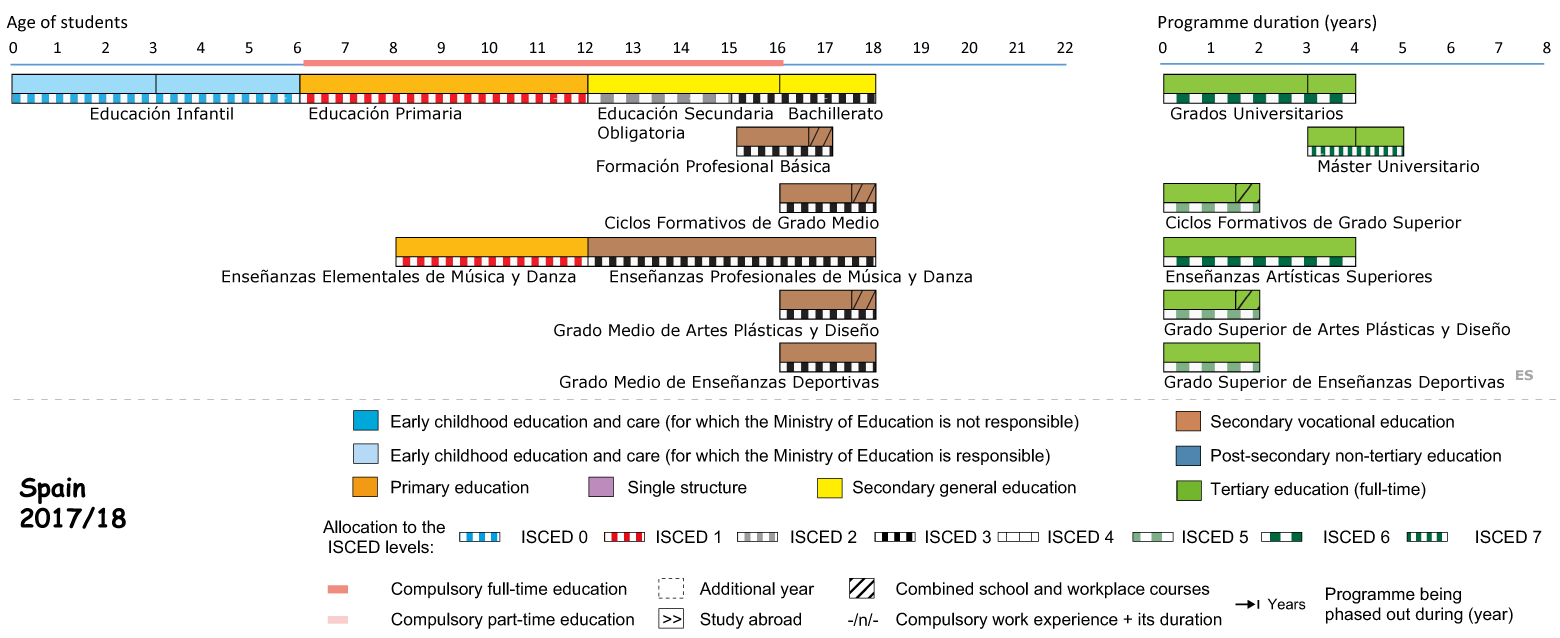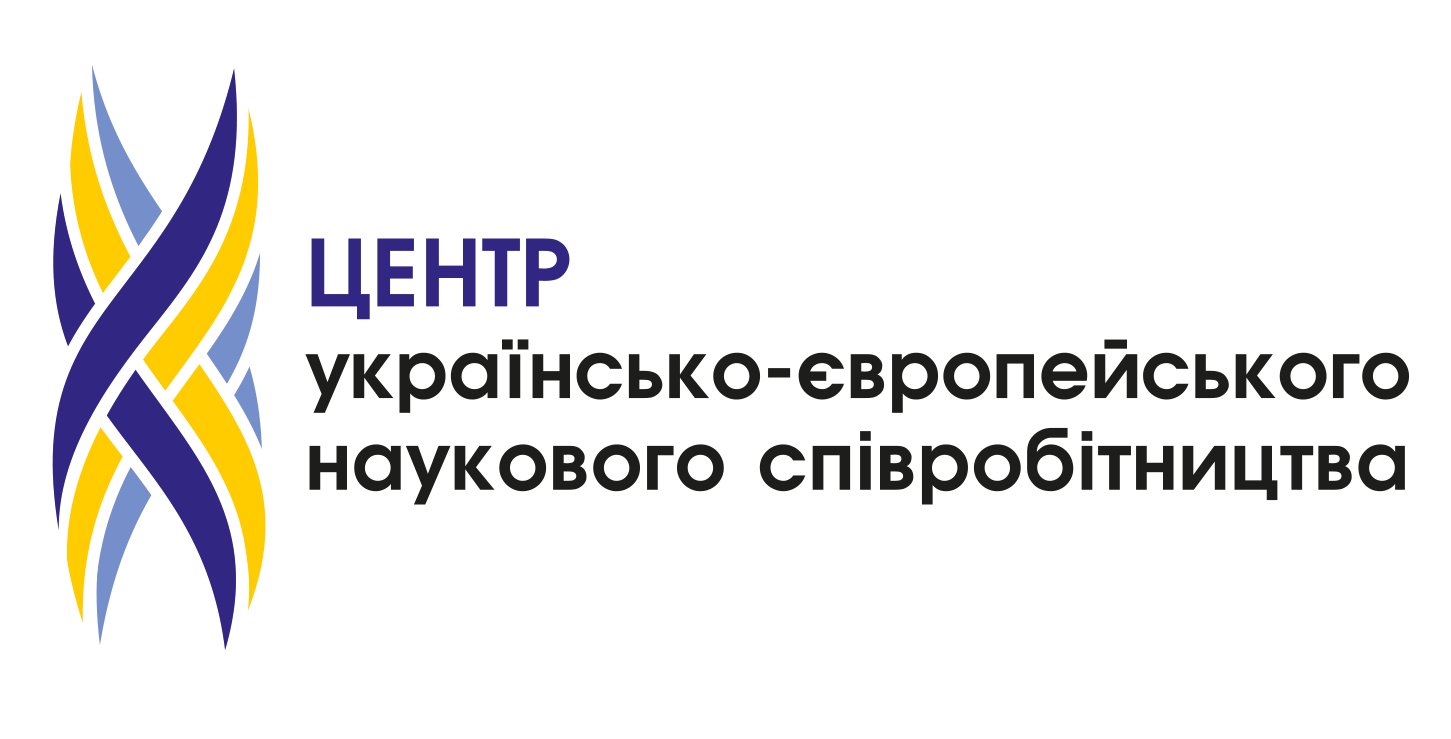 The Spanish education system comprises:
The Spanish education system comprises:
- the education authorities, education professionals and other public and private actors who perform regulatory, financing or service provision functions for the exercise of the right to education included in the 1978 Spanish Constitution
- those entitled to the right to education
- the set of relations, structures, measures and actions being implemented in order to ensure it.
Key features of the education system
The Act on the Improvement of the Quality of Education, modifying the 2006 Education Act, was passed in 2013. Its implementation finished in the academic year 2016/2017.
This reform recognises the need to combine quality and equity in the training provision. School enrolment is not enough to meet the right to education, but quality is a constituent element of that right.
Main characteristics of the administration of the education system
Decentralisation: educational competences are shared between the General State Administration (Ministry of Education, Culture and Sport) and the authorities of the Autonomous Communities (Departments for Education):
- the central education administration executes the general guidelines of the Government on education policy and regulates the basic elements or aspects of the system
- regional education authorities develop the State regulations and have executive and administrative competences for managing the education system in their own territory.
Schools have pedagogical, organisational and managerial autonomy for their resources.
Participation of the education community in the schools’ organisation, governance, running and evaluation.
Characteristics of the educational system
- Declining trend in the early school leaving rate (19.0% in 2016), although it is still far from the European average (10.7% in 2016) and the 15% objective planned in Spain for 2020 (10% in the EU)
- Objectives of the implemented reform:
° reduce the early school leaving rate
° improve the educational results (rate of excellent students and rate of students holding the Lower Compulsory Secondary Education Certificate)
° improve employability and stimulate students’ entrepreneurial spirit
° prepare students for the exercise of citizenship, as well as for active participation in the economic, social and cultural life, with a critical and responsible attitude and capable of adapting to the changing situations of the knowledge-based society - Principles of the implemented reform:
° increase in school autonomy,
° reinforcement of the management capacity of school leaders, external evaluations at the end of each stage
° rationalisation of the educational provision
° flexibility of pathways
° transmission and implementation of values which promote personal freedom, responsibility, democratic citizenship, solidarity, tolerance, equality, respect and justice, as well as helping to overcome discrimination of any kind - Main new elements:
1. external evaluations, formative and diagnostic, at the end of the stage, and focused on the level of acquisition of skills
2. changes in the administration and management of the education system: curriculum and distribution of competences, participation in the running and governance of public and publicly-funded private schools, school autonomy, mixed-membership governing and teaching coordination bodies, public school management and evaluation of the education system
3. reinforcing, at all stages, the learning of core subjects which contribute to the acquisition of key skills for the academic development of students
4. Programme for the Improvement of Learning and Performance in Compulsory Secondary Education, basic vocational training, the anticipation of the pathways into Bachillerato and vocational training and the transformation of the current 4rd year of compulsory secondary education into a preparatory year with two different paths
5. bridges between the different training paths and within them, so that none of students’ decisions is irreversible
6. integration of Civic and Constitutional Education into all the subjects of basic education, including the acquisition of social and civic skills in the daily dynamics of teaching and learning processes. - Special emphasis will be placed on the following areas in order to transform the education system: information and communication technologies, promotion of multilingualism and modernisation of vocational training.
Important challenges of the education system
Spain has prioritised the modernisation and flexibilisation of its education system:
- improve efficiency in education expenditure by improving human resources performance, adjusting public prices to the real cost of education and rationalising educational provision
- establish new criteria in the system of grants and financial support in post-compulsory and university education
- raise the performance of education and training systems and overall skill levels
- ensure personalised attention to students
- reduce early drop-out by reforming compulsory and post-compulsory education. Increase the number of young people who, once they have successfully completed compulsory secondary education, continue studying Bachillerato or intermediate vocational training cycles
- attractiveness and relevance of vocational training of the education system, by designing a vocational qualification for students who leave compulsory education with no certificate
- implementation of dual vocational training in the education system
- encourage the completion of training periods by vocational training teachers, or the work placement module in other Autonomous Communities or EU countries
- establish bridges between training paths
- improve foreign language learning
- continue improving higher education enrolment rates, in both university and vocational education
- reform and improve the quality and efficiency of the Spanish university system, and increase the number of foreign students and teachers
- prepare and implement the Lifelong Learning Plan
- increase the current percentages of participation in lifelong learning, reaching a 15% of adults
- strengthen ties between higher education institutions, employers and the labour market in order to adapt study programmes to labour market needs
- promote the employability of young people through education, training, foreign language learning and information and communication technologies
- encourage mobility through grants and financial support.
Stages of the education system
Pre-primary education is up to 6 years of age. Although it is not a compulsory education stage, the second cycle is free in all publicly-funded schools (public schools and publicly-funded private schools). Public schools providing it are called pre-primary schools and those also offering primary education are called pre-primary and primary schools.
Basic education is compulsory and free in publicly-funded schools. It lasts ten years and it is divided into two stages:
- Primary education, provided in primary schools. It covers six academic years, usually studied between the ages of 6 and 12
- Compulsory secondary education, studied in secondary schools, between the ages of 12 and 16. At the end of this stage, students receive the first official certificate, the Lower Compulsory Secondary Education Certificate, which allows them to have access to upper secondary education or the world of work.
Upper secondary education is also provided in secondary schools. It lasts two academic years, usually studied between the ages of 16 and 18. It offers two possibilities: Bachillerato (general branch) and intermediate vocational training (professional branch). The latter is also provided in vocational training integrated institutions and in national reference institutions.
The reforms of vocational training provision include:
- creation of basic vocational training cycles: they can be taken by students aged 15-17, among other entry requirements that have been established
- development by the education authorities of dual vocational training in the education system.
Higher education comprises university and professional studies. University education is provided in universities and advanced vocational training is provided in the same institutions as those offering intermediate vocational training.
Adult education and training covers different types of provision offered by the education and employment authorities, provided by institutions from different nature. Classroom-based education leading to the award of official degrees of the education system is provided in ordinary schools or specific schools for adults. Adult education and training is aimed at people aged over 18 and, as an exception, workers aged over 16 who cannot attend school in ordinary regime or high performance athletes.
Apart from these studies, the Spanish education system offers specialised education:
- Language education, provided at official language schools. To have access to these studies, students must be 16 years of age and, exceptionally, 14 in the case of wanting to learn a language other than the one studied in compulsory secondary education.
- Artistic education, including elementary Music and Dance education, professional artistic education and advanced artistic education. These studies are provided in different specific schools, according to every kind and level of education
- Sports education, organised in intermediate and advanced training cycles and provided in the same institutions as those providing vocational training.
Structure of the national education system
Resource: https://eacea.ec.europa.eu/national-policies/eurydice/content/spain_en









